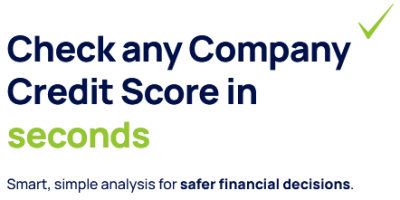Company credit reports are essential tools for assessing the financial health and creditworthiness of businesses. Whether you are a business owner, investor, supplier, or lender, understanding the ins and outs of company credit reports is crucial for making informed decisions. In this blog will explain everything you need to know about company credit reports and how to analyze the data they include.
What Is a Company Credit Report?
A company credit report is a detailed document that provides a comprehensive overview of a business’s credit history and financial standing. It is compiled by credit reporting agencies based on data from various sources, including creditors, public records, and trade suppliers. This report includes a company’s credit score, payment history, public records, credit utilization, and other relevant information that helps evaluate its creditworthiness.
The Importance of Company Credit Reports
Company credit reports are essential for several reasons. Firstly, they enable businesses to assess the creditworthiness of potential clients, partners, or suppliers before entering into any business transactions. By identifying high-risk companies, businesses can avoid non-payment issues and protect their financial interests. Secondly, lenders and investors rely on these reports to make informed decisions about providing credit or funding. Lastly, company credit reports play a significant role in building trust among stakeholders, as they demonstrate a company’s financial stability and credibility.
Components of a Company Credit Report
A typical company credit report comprises several key components:
Credit Score
The credit score represents a numerical value that reflects a company’s creditworthiness. It provides a quick assessment of the company’s ability to meet financial obligations. Higher scores indicate lower credit risks, while lower scores may indicate potential difficulties in honoring commitments.
Payment History
This section details the company’s past payment patterns, including on-time payments, late payments, or defaults. A consistent history of timely payments suggests a reliable and financially responsible company.
Public Records
Public records include any legal actions against the company, such as bankruptcies, tax liens, and judgments. These records significantly impact a company’s creditworthiness and should be carefully considered.
Credit Utilization
Credit utilization reflects the percentage of available credit that the company is currently using. High credit utilization may indicate financial strain and could lead to credit issues.
Credit Inquiries
This section lists the instances where the company’s credit report was requested. Frequent inquiries may suggest financial distress or an urgent need for credit.
Interpreting a Company Credit Report
Interpreting a company credit report requires attention to detail and understanding the context of the information presented. Start by reviewing the company’s credit score and rating. A high score indicates a lower risk of default, while a low score suggests caution. Next, examine the payment history to gauge the company’s track record for meeting financial obligations. Consistent on-time payments are positive signs, while late payments may raise concerns.
Public records provide crucial insights into the company’s legal and financial history. Be attentive to any bankruptcies or judgments, as they may indicate financial instability. Credit utilization gives you an idea of how reliant the company is on credit, and frequent inquiries might signify financial difficulties or potential expansion plans.
How to Use Company Credit Reports
Company credit reports should be used as part of a comprehensive risk assessment process. Avoid relying solely on credit scores; instead, analyze all the components in conjunction with each other. Compare the company’s credit report to industry benchmarks and historical data to gain a broader perspective.
When engaging with a new client, partner, or supplier, run a credit check to make an informed decision about the level of risk involved. For existing business relationships, consider running periodic credit checks to monitor changes in the company’s financial health and respond proactively to any red flags.
Chackaco is a great way to check a company’s credit score for free. It is a quick and easy process, and it can give you valuable information about the company’s financial health. If you are considering working with a new company, I recommend checking their credit score with Chackaco first.
Conclusion
A company’s financial stability and creditworthiness may be assessed using What You Need to Know About Company Credit Reports. You may make wise judgements, reduce risks, and develop solid business ties by comprehending the elements and accurately analysing the data. This will promote long-term success and stability in a cutthroat industry.

